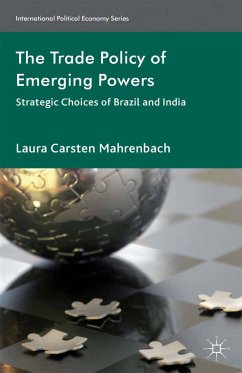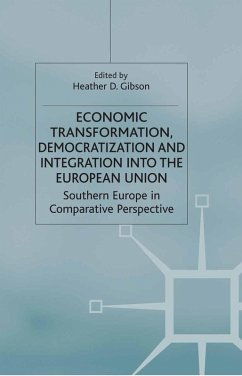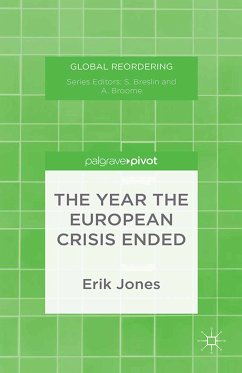Dieser Download kann aus rechtlichen Gründen nur mit Rechnungsadresse in A, B, BG, CY, CZ, D, DK, EW, E, FIN, F, GR, HR, H, IRL, I, LT, L, LR, M, NL, PL, P, R, S, SLO, SK ausgeliefert werden.
"A really major empirical and theoretical contribution to both constructivist international political economy and to the study of European integration - there is so much to learn from this impressive study which should become a core reference point in the literature." - Colin Hay, Professeur des Universites en Sciences Politiques, Sciences Po, Paris
"This book provides an innovative and up-to-date analysis of the EU's trade relations since the 'Global Europe' strategy. After two decades of research into institutionalist dynamics and interest groups lobbying within the EU, the author proposes a highly original critical and constructivist framework which brings 'ideas' (e.g. neoliberalism) and 'agents' (e.g. DG Trade) into the study of the EU's common commercial policy. Empirically, the book covers the major recent developments in EU trade policy through detailed case studies on the EU-Korea Agreement, the Economic PartnershipAgreements, and the implications of the economic crisis. It is a well written and convincing reference work that should be read by anyone interested in EU studies and international political economy." - Jan Orbie, Professor in the rank of Senior Lecturer, Ghent University, Belgium
"In this fascinating book, Siles-Brügge offers a lucid explanation of the shift of EU trade policy towards bilateralism, a move called 'Global Europe'. Although frequently driven by lobbying demands of the services sector, 'Global Europe' is not merely a fancy label, but at the core a discourse that promotes a particular view of the EU as global actor. Moving the debate between critical theory and rationalist approaches forward, the book will be required reading for anyone interested in EU trade policy and EU governance more broadly." - Mark S. Manger, University of Toronto, Canada









